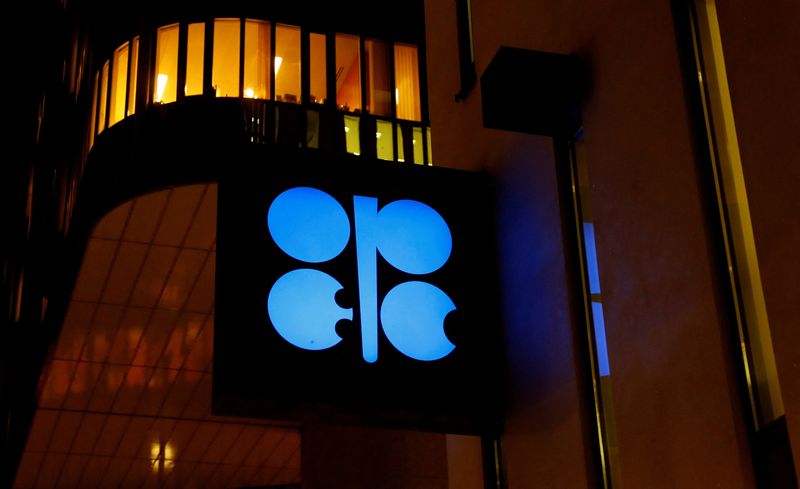By Alex Lawler
LONDON (Reuters) - OPEC oil output has fallen in November, led by top exporter Saudi Arabia and other Gulf members, after the wider OPEC+ alliance pledged steep output cuts to support the market amid a worsening economic outlook, a Reuters survey found on Wednesday.
The Organization of the Petroleum Exporting Countries (OPEC)pumped 29.01 million barrels per day (bpd) this month, the survey found, down 710,000 bpd from October. In September, OPEC output had been the highest since 2020.
OPEC and its allies, known as OPEC+, have been boosting output for most of 2022 as demand recovered. For November, with oil prices weakening amid concern of recession, the group made its largest cut since the early days of the COVID-19 pandemic in 2020.
Their decision for November called for a 2 million bpd cut in the OPEC+ output target, of which about 1.27 million bpd was meant to come from the 10 participating OPEC countries.
Output has been undershooting targeted amounts as many producers - notably Angola and Nigeria - lack the capacity to pump more due to insufficient investment and, in the case of Nigeria, crude theft.
Output from the 10 members fell by 720,000 bpd month-on-month, the survey found, leaving actual production 800,000 bpd below the group's November output target. The shortfall in October was 1.36 million bpd.
As a result of production being below target, OPEC over-delivered on its pledged cuts with a compliance rate of 163% in November, the survey found.
OPEC+ meets virtually on Sunday to review its output policy and is not expected to make any changes.
SAUDI CUT
In November, Saudi Arabia has cut output by 500,000 bpd versus October, the survey found, virtually all of the pledged amount. The United Arab Emirates and Kuwait made the next largest curbs.
Algeria cut about half of the pledged amount and Iraq, OPEC's second-largest producer which has been calling for its quota to be increased, barely lowered output in November, according to the survey.
Angola and Nigeria each boosted output in November but both are pumping far below their quotas, the survey found. Nigeria posted OPEC's largest increase, helped by higher exports of Forcados crude.

There was little change in production in Libya, Iran and Venezuela, all of which are exempt from OPEC output cuts.
The Reuters survey aims to track supply to the market. It is based on shipping data provided by external sources, Refinitiv Eikon flows data, information from tanker trackers such as Petro-Logistics, and information provided by sources at oil companies, OPEC and consultants.